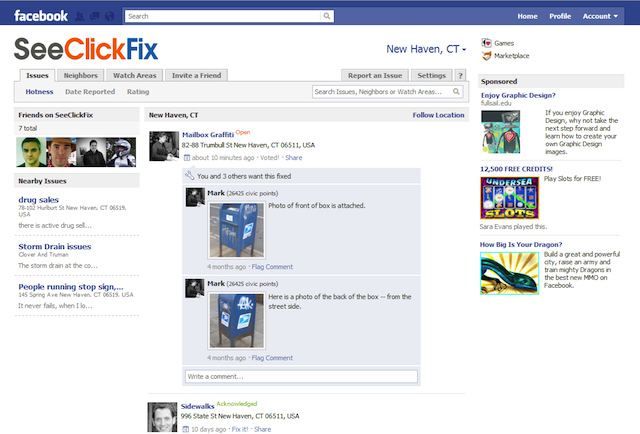
Yesterday (June 15, 2010), I had the chance to attend “Online Engagement for Sustainable Urban Mobility”, a panel discussion and roundtable organized by EMBARQ, the sustainable transportation arm of the World Resources Institute, at its headquarters in Washington, D.C. Part of a week-long citywide festival focused on technology and innovation, the event brought together citizen activists and representatives from government agencies and non-profits to discuss open data, online citizen engagement and collaboration – while looking at the nation’s capital as a case study. The agenda, as seen on the invitation
How urban transportation can be made more sustainable through:
- Open Data
- Blogging and Citizen Journalism
- Government Transparency and Civic Engagement
- Citizen Collaboration
This was a great forum to share/listen best practices, lessons learned, failure stories and ideas of how to put theory into practice, as it relates to the following over-arching questions: What online tools exist in the D.C. area to make transportation more efficient, user-friendly and sustainable? What are some examples of Web-based innovation and collaboration in the D.C. transport sector? How can government, technology and civil society work together to improve the way we move around – by foot, by car, by bike, and by transit – in the nation’s capital?
The awesome panel consisted of the following individuals:
Moderator: Christian Madera (Columnist, Next American City)
Host: Erica Schlaikjer (Online Engagement Coordinator, EMBARQ)
Panelists:
Roundtable Discussion Leaders:
- Eric Gundersen (Development Seed)
- Harriet Tregoning (Office of Planning)
- Nat Bottigheimer (WMATA)
- Dan Silverman (Prince of Petworth)
- Zvi Band (FixMyCity DC)
- Philip Ashlock (OpenPlans)
Here are some interesting observations worth sharing, courtesy of Moderator Christian Madera and fellow participant Kara Hadge, contributing author of New America Foundation’s Sustaining Democracy in a Digital Age blog, who sat right next to me and offered great input to our discussion group. For a detailed recap/summary, I seriously recommend you to check out Christian column on Next American City and Kara’s blog post titled Wired Cities .
- While the local city government has been at the forefront of releasing its municipal data for the public and developers to utilize, most of the region’s transportation falls under the jurisdiction of WMATA, the regional transit agency.
- DDOT is involved is now sharing an API for real-time location data for the city’s small fleet of circulator buses, and embarking on the use of QR codes on buses and shelters to assist both passengers and transit managers
- DC Circulator will shortly be launching an Open Data Challenge for developers, featuring three categories: Public Apps (Web and/or Mobile;), Visualization (currently there is no dashboard to monitor what’s happening on all lines), and an unknown internal app to be used by WMATA/DDOT.
- DC Capital Bikeshare #CaBi website http://capital-bikeshare.appspot.com/ is expected to be launched soon
- DDOT is looking to add (someday) these MIT conceived futurisitic looking, networked, read again – networked, bus stops called Eyestop
 In all, it was a great experience meeting and listing to some of the best minds in business about the use of social media tools and emerging opensource efforts in transportation. Thanks to EMBARQ and the Digital Capital Week community for putting together this event. I’ll certainly keep you informed of other resources/products resulting from this event as they become available.
In all, it was a great experience meeting and listing to some of the best minds in business about the use of social media tools and emerging opensource efforts in transportation. Thanks to EMBARQ and the Digital Capital Week community for putting together this event. I’ll certainly keep you informed of other resources/products resulting from this event as they become available.




